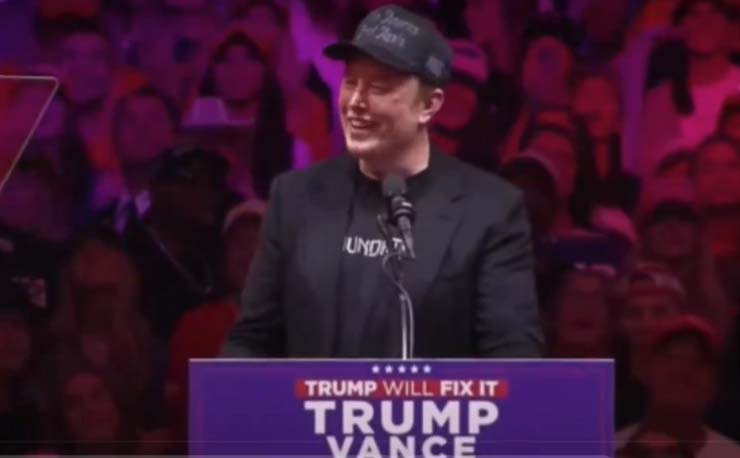The District Attorney of Philadelphia, Larry Krasner, has recently filed a lawsuit against billionaire entrepreneur Elon Musk and his political action committee (PAC) “America PAC”. The reason for the lawsuit is a controversial campaign to give away $1 million a day to registered voters in so-called swing states. The lottery, which is officially described as “promoting freedom of speech”, has raised numerous legal questions and accusations.
The Background of the Raffle
Elon Musk, founder of Tesla and SpaceX as well as owner of X (formerly Twitter), announced a campaign via his Super-PAC “America PAC” a few weeks ago, which has attracted a lot of attention. Every day, registered voters in strategically important states such as Pennsylvania, Georgia and Michigan will have the chance to win $1 million. The only requirement to participate is to sign a petition supporting the First and Second Amendments, as well as the right to free speech and the right to own guns.
This contest is seen as an attempt to influence voters in battleground states and influence the political climate. Opponents of the action claim that it could be considered an illegal attempt to influence the election results.
District Attorney’s Charges
The District Attorney of Philadelphia alleges that the Million Dollar Sweepstakes violates state and federal law. Specifically, they allege that the Sweepstakes constitutes an illegal and unregulated lottery. In Pennsylvania, all lotteries must be regulated and licensed by the state to prevent fraud and abuse.
District Attorney Larry Krasner has emphasized that this action could undermine voter confidence and be seen as an attempt to influence the upcoming election. He claims that Musk’s operation does not meet the legal requirements and is therefore illegal.
Federal Legal Concerns
In addition to the state lawsuit filed by the Philadelphia District Attorney’s Office, there are also federal legal concerns. The U.S. Department of Justice has already warned Musk and his PAC that the lottery may violate federal laws prohibiting payments and financial incentives in connection with elections.
The federal government views election-related payments as potentially corrupting and has issued strict guidelines to prevent any influence from financial incentives. The lottery, which pays out $1 million a day, is seen by critics as a form of “buying” voters’ votes, even though there is no direct invitation to vote.
Musk’s defense
Elon Musk and his team at “America PAC” have denied the allegations and stressed that the raffle was only meant to generate attention for the petition. They claim that the promotion is neither an invitation to vote nor a condition on how participants should vote. Musk argues that the purpose of the promotion is to underscore the importance of the First and Second Amendments and to encourage citizens to advocate for these rights.
Musk and his PAC insist that the sweepstakes does not constitute improper election interference because participation is independent of voter registration or an election day. They see the sweepstakes as a way to encourage people to defend their opinions and their right to free speech.
Possible Consequences
If a court were to agree with the district attorney’s argument and find the raffle illegal, the operation could be halted. In addition, Musk’s PAC, and possibly Musk himself, could face fines or even criminal charges. If the court decides that this is a form of election interference, it could set a precedent and have far-reaching effects on future political actions and campaigns.
There could also be legal consequences at the federal level if the lottery is found to be in violation of federal law. In that case, not only fines but also restrictions on future political activities by Musk and his PAC would be possible.
Political and legal debate
The case has sparked a broader discussion about the limits of political campaigning and the role of financial incentives in influencing voter turnout. Many critics argue that actions like Musk’s violate the basic principles of democracy because financial incentives could influence voter behavior. Supporters, however, see it as a creative way to draw attention to important issues and promote public awareness of constitutional rights.
The case is also seen as a test of the laws governing political speech and campaign finance. The outcome of the case could have implications for upcoming elections, particularly the question of whether financial incentives are permissible as part of political campaigns.
Conclusion
The lawsuit against Elon Musk and his PAC “America PAC” raises important questions about the line between political speech and improper influence on elections. It highlights the challenges that new forms of political campaigning pose to existing legal frameworks. The outcome of the case could have far-reaching implications for future political campaigns and campaign finance in the United States.
Regardless of the outcome, this case is seen as an important precedent that could influence the rules governing political advertising and financial incentives in elections.
